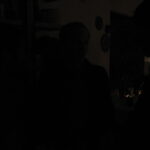Laboratory of conflict. May 22
Laboratory of conflict –Concluding seminar of a two day workshop held at Weld. In English, free entrance. Participants: Marta Dauliute, Johanna Gustafsson Fürst, Tor Lindstrand, Legwork/Tobey Albright, Timothy Murray, Egle Obcarskaite, Dorinel Marc
Laboratory of conflict is a workshop involving art and cultural practitioners, who engage with various sorts of collaborators – communities, co-workers, experts or similar in their practice. It is set up to rethink the conventions of participation and collaboration, taking the paradigm of conflict as a starting point – that is, assuming that collaboration as a practice always contains a paradox and is constituted by the tensions between exploitation and generosity, institutionalization and illegitimacy, autonomy and intervention.
Florian Schneider and Markus Miessen advocate undoing the romantic notion of collaboration, where the latter offers a conflict-based participation, mainly grounded on the theories of Chantal Mouffe. Miessen argues that conflict can instigate the production of new knowledge. Therefore, the discourse requires an outsider or intruder, who can bring up a new perspective and thus disturb the consensus. The idea of a conflict might suggest different parameters for the field wherein collaboration takes place. These parameters would be set in a dynamic and problematic way, counter to principles of inclusive democracy and its supposedly equal distribution of power.
The workshop will elaborate on whether conflict-based collaboration is viable. It will look at various ways that conflict can be explored as a method of breaking through ’business-as-usual’ (both in day-to-day practical routines and discursive frameworks) and how one employs it in own artistic/cultural practice.
The questions to be explored:
-What are the models and situations for entering a new terrain where collaboration will immediately begin to take place? What positions and agendas define the terrain?
-How does one proceed to develop a conversation? What ethical and critical questions arise in the process? What kind of power relations emerge? How does one delineate his/her own individual agenda, and what methods could exist to negotiate it with other participants or contributors?
-How does this negotiation process affect the final outcome, product or representation? What are the different models of engaging in an intersubjective situation in order to produce new perspectives?
-How does one talk about what he or she is in process of working with?What insights does the moment of this transition into a linguistic mode bring or take away?
The workshop will function as a platform rather than as an educational activity. It will start with the closed sessions for the participants to revisit their practices within the peer group through the paradigm of conflict.
The collective discussion will be opened up for wider audience on May 22, 6 p.m. where the delineated questions and problems will be explored further on.
